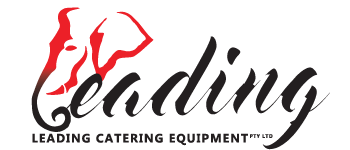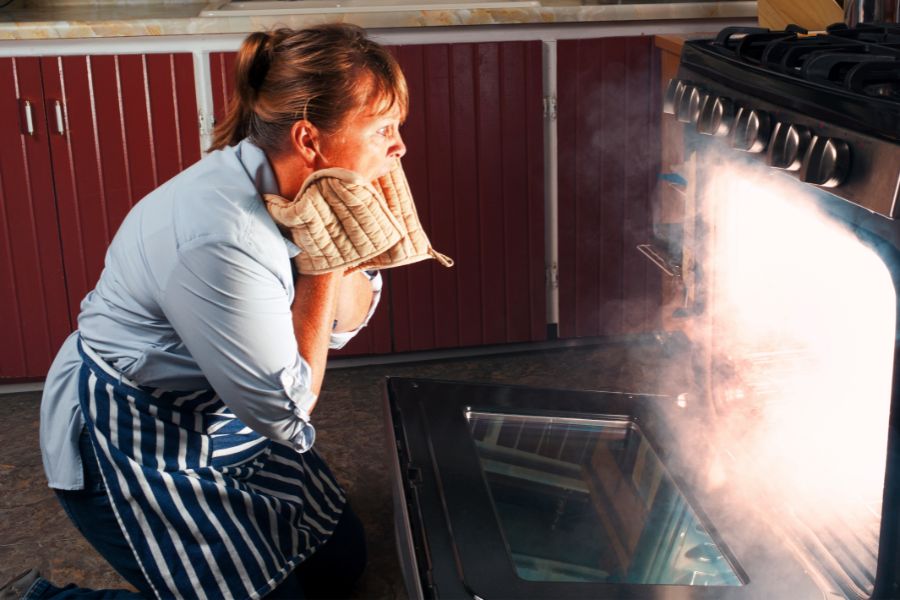It is no small achievement running a commercial kitchen. The equipment used is vital for keeping things smooth and efficient. However, common mistakes can lead to costly repairs, downtime, or safety risks. Being aware of how to prevent these errors will help ensure your kitchen appliance stays in shape. Let's dive into some of the most frequent errors made with commercial cooking equipment and how to prevent them.
Improper Cleaning and Maintenance
Many kitchens neglect proper cleaning routines. With time, grease, food remains, and dust can accumulate, making appliances work more intensely and resulting in breakdowns.
Get even and faster cooking than a conventional oven & get more productivity. Check out our Convection Ovens here.
How to Avoid It:
Set up a strict cleaning schedule. Each product should have daily, weekly, and monthly tasks clearly outlined. For example, ovens should be wiped down daily and deep-cleaned monthly. Ensure filters, vents, and drains are also part of the cleaning routine.
Using the Wrong Equipment for the Job
Sometimes, staff may use equipment for tasks it wasn't designed for. This can strain the machine, reduce lifespan, or lead to poor food quality. For instance, using a normal oven to prepare meals meant for a combi oven canlead to undercooked preparations.
How to Avoid It:
Train staff on proper equipment use. Ensure they understand what each machine is for and what it isn't. Having clear instructions posted near the machine can also help as reminders.
Ignoring Manufacturer Instructions
Every pantry product comes with a manual. However, many kitchen operators skip reading it, leading to incorrect usage, voided warranties, or missed maintenance steps.
How to Avoid It:
Make sure every staff member is familiar with the manufacturer's instructions. Keep the manuals handy in the pantry. Review the guides regularly to ensure maintenance tasks, such as filter changes or calibration, are done correctly. For further insights, you can contact LCE – the leading commercial cooking equipment supplier in Australia.
Overloading Cooking Equipment
Overloading ovens, fryers, or grills is a common mistake. While this might seem like a way to cook faster, it can backfire. Overloading causes uneven cooking, slow heat distribution, and even machine damage.
How to Avoid It:
Stick to the manufacturer's capacity limits. Train staff to follow these guidelines. Remind them that overstuffing can also lower food quality, which may lead to unhappy patrons.
Not Calibrating Equipment Regularly
Many kitchens skip regular calibration. Over time, ovens, grills, and fryers may lose their original settings, leading to inconsistent cooking temperatures and times.
How to Avoid It:
Schedule regular calibration checks. This ensures the appliance is cooking at the right temperatures, prevents food wastage, and maintains consistency in food quality. If you're unsure how to calibrate, contact a professional technician for assistance.
Failing to Train New Staff Properly
New employees may not fully grasp how to make all the commercial kitchen appliances function. This lack of awareness can lead to improper use, mishaps, and machine damage.
How to Avoid It:
Provide detailed training for all new hires. Explain how each appliance bought from a top commercial cooking equipment distributor works. Conduct hands-on training sessions and make sure they understand safety procedures. Think about refresher training for all the employees to reinforce best practices.
Neglecting Preventive Maintenance
Skipping regular maintenance is a major mistake. Preventive upkeep helps detect little issues before they become significant problems. It also ensures your model runs efficiently, saving energy and extending its lifespan.
How to Avoid It:
Fix an upkeep schedule and stick to it. This could include tasks like checking gas lines, lubricating moving parts, and inspecting electrical components. If you're unsure, work with a certified technician who can carry out regular maintenance checks.
Improper Ventilation
Commercial kitchens generate a lot of heat and grease. Proper ventilation can lead to overheating product, poor air quality, and fire hazards.
How to Avoid It:
Ensure your kitchen has the right exhaust hoods and ventilation systems. These should be cleaned and maintained regularly. Also, remember to change filters frequently, as clogged filters reduce airflow and efficiency.
Not Monitoring Product for Wear and Tear
Commercial cooking equipment parts naturally wear down over time. However, not checking these problems can lead to sudden malfunctions. Worn-out seals, loose hinges, and damaged cords can pose safety hazards.
How to Avoid It:
Frequently check your product for signs of wear and tear. Replace any parts showing signs of damage. Keeping an eye on smaller issues will prevent major breakdowns in the future.
Improper Fryer Oil Management
Frying devices often suffer from poor oil management. Reusing old oil or failing to filter it can degrade food quality. It can also damage the fryer and create a health hazard.
Compact, portable equipment that is perfect for quickly and efficiently frying food items like chicken, fries, and other snacks. Browse our premium Bench-top fryers.
How to Avoid It:
Change and filter fryer oil regularly. Follow the manufacturer's recommendations on oil lifespan—train staff to filter the oil properly to maintain freshness and prevent product damage.
Inadequate Power Supply
Many kitchens source products from commercial cooking equipment manufacturers that requires a lot of power. Plugging too many high-powered machines into one outlet can lead to power surges or item malfunctions.
How to Avoid It:
Ensure your kitchen has the correct electrical setup. Work with an electrician to evaluate power needs. Do not overload circuits and make sure outlets are properly grounded.
Not Checking for Gas Leaks
Neglecting gas line checks is a severe mistake in kitchens with gas appliances. Gas leaks can result in health hazards and pose a fire risk.
How to Avoid It:
Always look at the gas lines and connections for any leaks. Train staff to recognise the smell of gas and to act quickly in case of a suspected leak. Work with a professional to carry out regular gas inspections.
Running Equipment Without Preheating
Skipping preheating is a common time-saving attempt in busy kitchens. However, it can result in irregular food prep and pressure on the appliance.
How to Avoid It:
Always provide adequate time for the appliance to preheat to the desired temperature. This ensures food is cooked evenly and prevents unnecessary stress on the appliance.
Not Using Energy-Saving Settings
Many modern pieces of commercial cooking equipment come with energy-saving features. Unfortunately, many kitchens fail to use them, resulting in higher utility bills and unnecessary wear on the device.
How to Avoid It:
Take advantage of energy-saving modes whenever possible. Train staff to use these settings during off-peak hours. This will not only save power but also enhance your offering's lifespan.
Ignoring Temperature Monitoring in Coolers and Freezers
It's easy to forget about checking cooler and freezer temperatures. When temperatures fluctuate, it can result in spoiled food or damaged product.
How to Avoid It:
Monitor cooler and freezer temperatures daily. If possible, invest in automatic temperature-monitoring systems. This ensures food stays fresh and prevents breakdowns caused by fluctuating temperatures.
Enjoy multiple heat settings for accurate temperature control for simmering, boiling and frying. Check out our Electric Stoves range.
Conclusion
Avoiding these common commercial cooking equipment mistakes will keep your kitchen running efficiently and safely. It can also save you money in the foreseeable future by lowering the requirement for repairs and changes. A little care and attention can go a long way in ensuring your kitchen operates smoothly. Regular training, maintenance, and vigilance are key to keeping your appliance and kitchen at its best.






